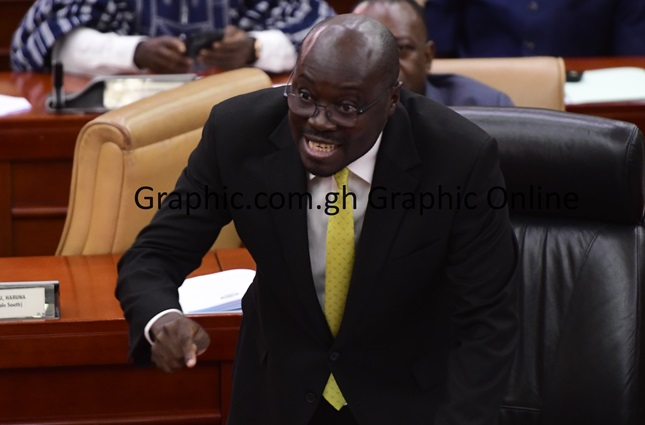The Minority Leader, Dr Cassiel Ato Forson, has recounted the challenges the financial sector and some state institutions endured under the leadership of outgoing President Nana Addo Dankwa Akufo-Addo.
He stated that the financial sector experienced severe mismanagement, which weakened the economy and caused certain institutions to record negative returns for the first time in their history.
Speaking on the floor of Parliament during the dissolution of the eighth Parliament, Dr Forson accused the Akufo-Addo-led government of implementing mechanisms that benefited a select few while burdening the nation with excessive public debt.
“Records available to this house show clearly that some individuals have profited to the tune of US$159.3 million in transaction advisory fees while the country was saddled with public debt,” he asserted.
Dr Forson further highlighted the mismanagement of the Central Bank, which he claimed resulted in “negative equity of GHS55.1 billion in 2022 and a cumulative loss of GHS71.3 billion between 2022 and 2023.” This, he added, rendered the Bank of Ghana (BoG) policy insolvent by the end of 2023.
He also criticised the government’s alleged illegal printing of money to finance expenditure, which, he said, significantly contributed to the inflation crisis that plunged over 800,000 Ghanaians into extreme poverty.
According to Dr Forson, the Central Bank’s management breached the law by writing off approximately GHS48 billion of government debt without seeking parliamentary approval, an act he described as a blatant disregard for the Public Financial Management Act (Act 921).
He expressed dismay at the actions of the Bank of Ghana Governor, Dr Ernest Addison, particularly during the height of the country’s economic crisis. Dr Forson alleged that the BoG awarded “questionable contracts for the construction of an ultramodern US$250 million head office and another ultramodern Governor’s residence at a cost that is unknown to the public.”
Dr Forson lamented that such decisions and actions by key financial institutions undermined the economic stability of the country and deepened the hardships faced by ordinary citizens.

